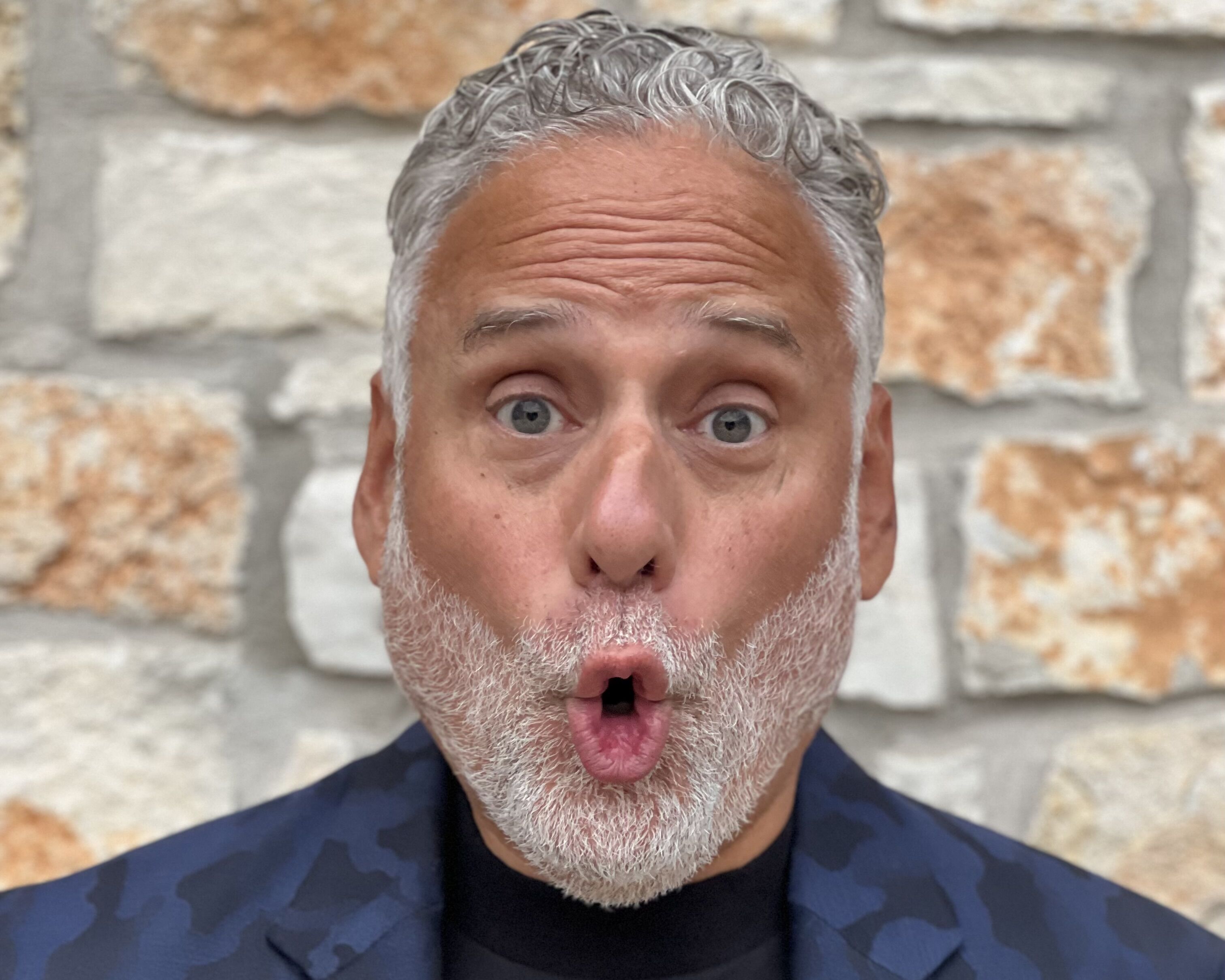Change is hard. And, mid-life comes with a lot of change. Changes in our physical appearance, abilities, and lifestyle all occur simultaneously and this can be a lot to manage. What’s more, these changes affect our routines and our mental and emotional health. Log onto any social media platform these days and you’re bombarded with videos with all kinds of information about the latest trends and advice. It’s enough to make my head swim. All this has me wondering if the latest health related trends are more helpful or hurtful. I did some digging for the sake of my own curiosity and maybe yours too.
Telehealth: Can I stay in my pj’s?
According to a July 2024 blog on vitelhealth.com, telehealth patient use is 38 times greater in 2024 than 2020. Telehealth, or receiving healthcare services remotely, via the use of technology, can be used for general wellness visits, discussing non-serious test results, nutritional counseling, and mental health counseling (excluding serious conditions). Telehealth definitely has its advantages. Personally, it’s provided convenience and saved me a lot of time. Being able to meet with a provider via video conference rather than a drive to their office for an in person visit, often fits into a busy schedule much better. Likewise, being able to schedule appointments, ask questions, and get lab results online, through MyChart, saves a lot of hassle. Family members enjoy the benefit of not having to change out of their comfy loungewear and leave the house to fight traffic when feeling under the weather. Maybe we even stay healthier because we’re not sitting in a germy waiting room. As we age we may face scenarios that make in person visits difficult. Perhaps we’ve reached a level of seniority in our careers that makes interrupting the workday difficult. Additionally, as bodies age and new ailments present themselves, it may be physically difficult to get to the doctor’s office. Patients who’ve retired may have moved away from their previous residence, but still want to retain the same provider, or they may have more time to travel, but want or need healthcare access during this time. Telehealth makes this possible.
This all sounds great. So, are there any disadvantages? A March 2024 article, published on verywellhealth.com, says telehealth is not appropriate for the following:
Blood and urine tests
X-rays
Physical diagnostic tests
Physical examinations
Shots or vaccinations
Surgery
Physical therapy
Does this apply to us Gen Xers? Afraid so. Medline Plus recommends that women age 40-60 have screenings for several things on this list. These include screening for diabetes and cholesterol, which are blood tests, vaccinations, and physical exams. Additionally, they suggest screenings for glaucoma, osteoporosis, and skin and colorectal cancer. Oof!
Isn’t aging fun?
Artificial Intelligence (AI): In medicine?
Artificial Intelligence (AI) is useful for a lot of things, but for medical care? That seems so impersonal. I had to try to understand this better. I haven’t seen any reports saying robots are going to be providing medical care so that erases that terrifying image. However, there are some pretty exciting possibilities with AI. According to theAmerican Psychological Association, AI could aid in suicide prevention, detection of dementia, and it could enhance personalized care. How you ask? Providers could monitor patients’ social media activity, credit card spending, GPS data, and smartphone metrics. Two assistant professors of psychology at the University of Notre Dame, are testing an algorithm that collects screenshots of patients’ online activity and the results could be used for suicide prevention. With AI, it may also be possible to detect dementia. A team at Drexel University in Philadelphia has shown that GPT-3 can predict dementia by analyzing speech patterns. Lastly, AI could enhance personalized care. AI can be used in conjunction with wearable devices, to make individualized suggestions.
Sounds promising, right? There must be some downsides. HiTrust, a company that helps ensure the safe usage of AI in healthcare, points out that privacy risks and misdiagnosis are two of the biggest pitfalls of AI. Fortunately, they and companies like them work to combat this. Additionally, trusted places like the Mayo Clinic are aware of this concern and have their own procedures and are looking at safeguards. While that’s somewhat reassuring, a February 2023 article, entitled “Drawbacks of Artificial Intelligence and Their Potential Solutions in the Healthcare Sector”, that appeared on the National Institute of Health’s website, listed several things to be aware of including ethical concerns, clinical implementation, and bias. Those are things that sound like a pretty big deal, so for now, my stance on AI in healthcare is that I’m cautiously optimistic.
“Help, I’ve fallen and can’t get up”
Remember the Life Alert commercial with this line? Did anyone else think they used the same actress in the clap on commercials? I digress. I think I was about 11 years old when the commercial aired. Honestly, I found it a bit amusing. I didn’t think someone falling and getting hurt was funny. At my ripe old age of all of 11 years, I just couldn’t imagine such a scenario. Fast forward to today and modern wearable devices offer so much more and apply to such a wider audience.
Wearable medical devices entered the market in 2016, The American College of Sports Medicine surveyed more than 4500 fitness professionals and reported that wearable technology remained the top fitness trend of 2023. The June 2023 article Commentary: Is Wearable Fitness Technology a Medically Approved Device? Yes and No, laid out the advantages and disadvantages. Among the advantages are enhanced real-time health monitoring and early detection of potential health issues. Devices can alert a healthcare professional or 911 if a patient falls or suffers heart attack and can use GPS to provide the patient’s location. Another benefit is that because wearers can self-track their health, this awareness may assist with behavior modification, for example adapting sleep and movement habits. Hmm. It sounds like a wearable tracker could give good suggestions. Whether users choose to follow those suggestions or not? Who knows. However, wearable devices can also help with early detection of potential health issues. Because devices can monitor peripheral temperature they could predict the onset of illness. This could be a big help in fighting pandemics like COVID-19. That would get my attention. I don’t want to feel lousy any longer than necessary.
While disadvantages include privacy concerns, varying reliability, and the need for data confirmation, what I find more concerning are the negative health consequences. The NIH points to the fact that studies have found a correlation between device reliance and undereating due to weight concern. While you’d think vanity regarding physical appearance is something with which younger generations are more concerned, I was surprised to learn that perimenopausal women can be equally vain. I talk more about this in the below perimenopause section.
I swallowed a watermelon.
That’s what it feels like when your gut health isn’t optimal. Aging, perimenopause and menopause can bring irritable bowel syndrome (IBS) and bloating. Oh, the joys.
Eating fermented food like sauerkraut, kombucha, kefir, and turmeric (anti-inflammatory), as well as pre-biotics like garlic, onions, chickpeas, and beans can improve gut health. You can keep your fermented food, but I’ll eat the pre-biotics. Why? Well, because poor gut health means feeling lousy and good gut health doesn’t. According to Healthline’s April 2023 article, “How Does Your Gut Microbiome Impact Your Overall Health?”, poor gut health can lead to an upset stomach, unintentional weight loss or gain, and sleep issues .
Avoiding alcohol, sugar, and inactivity can help stave off these symptoms. And, good gut health can lead to improved overall health and improved mental health. I’m in.
Do I have dementia or am I in perimenopause?
This was my friend, Amy’s, fear. Seriously. Amy’s an intelligent woman. When she started having trouble remembering little things she began contemplating whether she was experiencing symptoms of early onset dementia. A visit to her doctor confirmed, nope, it’s likely perimenopause. Yay? Not so fast. The website, Midi,lists symptoms that can include decreased libido, mood changes, anxiety, sleep disruptions, joint pain, headaches, brain fog, word loss, weight gain in different parts of the body, and low energy. The kicker? As the PBS special The M Factor: Shredding the Silence on Menopause points out, A. Doctors get little training in this. B. Hormone replacement therapy (HRT) can help, but insurance doesn’t always cover it. The good news? Residency programs are doing more to address menopause now, women are demanding information and answers, and sites like Midi are delivering. Visit https://www.joinmidi.com/blog for articles about symptom management and more.
Hot girl summer
As a symptom of perimenopause and menopause is weight gain, naturally, conversation often steers toward talk about weight loss. My friend, Lia, a dietician, says her neighbors are all talking about Ozempic. Hearing this surprised me. I mean, I live near Seattle, the birthplace of grunge wear. Women around here are really that vain? I’d expect this line of thinking in Houston, where I previously lived (beauty patents are bigger in the south), but it’s spreading everywhere. Wow. When’s Megan Trainor’s anti-Ozempic song being released? Sure, who doesn’t want the body at 50 we had at 25? But, at the risk of unknown side effects? No thanks.
The bottom line? Midi’s medical advisor and certified menopause practitioner, Lauren Streicher, MD, is a proponent of GLP-1 meds with lifestyle changes, mainly involving healthy sleep, exercise, and diet habits and routines.
*Dr. Streicher is a clinical professor of obstetrics and gynecology at Northwestern University’s Feinberg School of Medicine and the founding medical director of the Northwestern Medicine Center for Sexual Medicine and Menopause.
Additionally, Dr. Mary Claire Haver, author of “The Galveston Diet”, says it’s not about weight loss, but health gain. She focuses on strong bones, mind, and heart. She doesn’t count calories or feel supplements are necessary, except for vitamin D. She advocates for dietary changes. I’m choosing to listen to the professionals.
Cold plunges: Relief from hot flashes or heart attack ahead?
This is how my friend, Carol, a fitness instructor, in addition to her full-time job, positioned the cold plunge debate. According to Medical News Today, advantages of cold plunges are
· Relief from hot flashes
· Anxiety relief
· Reduced joint pain
Hmm. These sound like promising benefits. But wait, what’s the other side?
Risks include:
· Hypothermia
· Cardiac arrest
Umm . . . that sounds uncomfortable at best, not to mention life threatening. My gut reaction is a hard pass. But . . . maybe there are things that can be done to minimize risk?
Keys for safety include:
1. Know your risk before you engage.
2. Take it slow, i.e, gradually increase the length of time you stay in the water
3. Take deep breaths
4. Take frequent breaks
5. Bring the proper clothing (a hat and warm layers for when you’re done)
6. Stretch after to avoid muscle tension
Well, those seem like logical tips, but is it all worth it? Before I’d join those saying, “Jump in, the water’s fine”, I’d need a lot more convincing. First, while yes, we’re talking about hot flashes, I’ve always hated being cold. So, I’d have to be pretty darn miserable. And, the effects would have to last a pretty long time. If and when I reach that point, I think I’d rather resort to my friend, Suzanne’s method. Awhile ago, she experienced a hot flash while grocery shopping. Really, Mother Nature? Not funny. Ever resourceful and always maintaining her sense of humor, Suzanne whisked her cart over to the freezer aisle, opened the door, and stuck as much as her body inside as she could. Ahh, sweet relief. Nothing to see here fellow shoppers. Move along. Here’s hoping that’s just what those pestering hot flashes do too. Move right along.
The fountain of eternal youth
When I heard about mitochondrial health, I had flashbacks to the movie “Cocoon”, that aired in 1985. The residents of a rest home in FL discover that if they take a dip in the pool, it’s water’s magical powers promise youth. Is that the promise of mitochondrial health? Technically, no. But, it could help with the aging process. If this for real? It may be. Before we get into that, you may need some more information. What is mitochondria anyway? You likely heard the reference in middle or high school science class. Mitochondria produce energy for our body’s cells. Research has shown use of mitochondrial transfer therapy, transferring healthy mitochondria, could help with the aging process and more. A National Institute of Health (NIH) article,Mitochondria: “A Potential Rejuvenation Tool against Aging”, published in April 2024 noted that with advanced age there is a build-up of mitochondrial DNA (mtDNA) mutations that affect the brain, skeletal muscle, retina, ovaries, and heart. Possible benefits of mitochondrial health include treatment for cancer, cardiovascular issues, and diabetes. Concerns include scarce clinical trials, so more research is needed to determine safety and effectiveness. Storage is also a challenge because mitochondria quickly become unviable. So, is the wave of the future? Sounds like the verdict for now is stay tuned.
A final word on exercise and nutrition in middle-age
My friend, Dragana, and her husband, Micki, are the owners of Fit Elite, a wellness company in Houston, TX. Dragana is a former Olympic swimmer and she and Micki both hold degrees in health, specifically kinesiology and exercise science, as well as a minor in health and exercise.
A concerning “trend” in exercise and nutrition lately is the rise of all the influencers on Tik-Tok and the like who are creating content that includes false information. While unlike younger generations, those in midlife more likely realize these influencers aren’t the experts, it’s still hard to separate fact from fiction.
Fiction: There’s a quick fix for all your fitness and diet-related woes.
Fact: Results will come through focusing on education and prevention through nutrition and movement.
Fiction: You can keep doing the same things you did in your younger years and get the same results.
Fact: Hormones are a big game changer at mid-life for both sexes. We must focus on health quality over quantity. And, focus on changing needs like incorporating weight bearing exercise to combat decreasing bone density, and flexibility and balance exercises to prevent falls and aid in movement.
Fiction: Your nutritional needs haven’t changed.
Fact: Women need more protein and calcium for muscle and bone health.
Fiction: There’s no connection between physical health and mental health.
Fact: There’s a link between exercise and Alzheimer’s/dementia prevention. Engaging in exercise you have to think about is the key because it engages not just your body, but your mind. EX: For women, Zumba class etc. For men, learn a new sport, NOT just weightlifting.
Fiction: It’s okay if you’ve neglected genetics and health.
Fact: This will catch up to you, but you can turn things around.
Dragana has seen male clients make lifestyle changes to avoid diabetes, heart attacks, and liver damage from alcohol and experience a wakeup call that they get a second chance.
TESTAMENT: A client who had practically 90% blockage around his heart was able to clear nearly all of it through healthier lifestyle choices.
What did I learn on my journey about healthcare in middle age?
There’s no denying bodies change as we age. Some of these changes are tough to accept. Weight gain in new places that won’t come off doing the same things that worked in the past, changing sleep habits and nutritional needs? Yep, these things are super frustrating. Equally frustrating is feeling like there aren’t a lot of clear answers. However, Gen X isn’t a group to idly sit by and suffer in silence. Nope. We grew up in the information era and we’re demanding answers. We may not have them all yet, but we’re not giving up. We’ve earned every grey hair and wrinkle and will proudly wear these battle scars of aging while we continue the quest for information and answers. Armed with these allies, we’ll enter this mid-life phase of life with guts. I’m excited to see what’s ahead.
Share this Article!
More Articles




